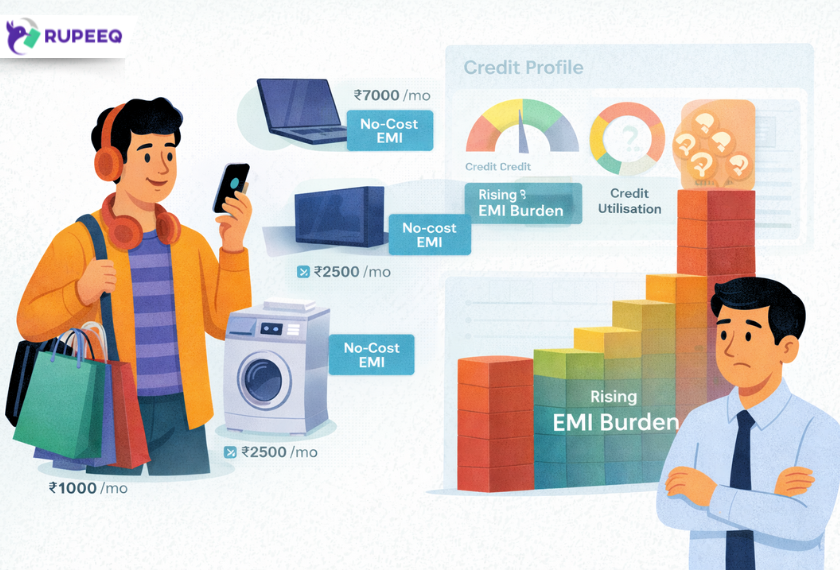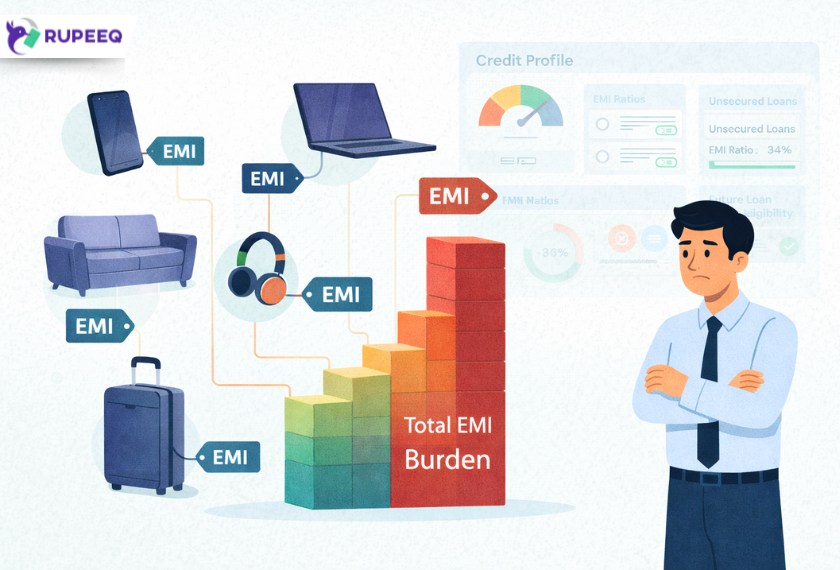Building a solid credit score from scratch or improving a poor score might feel like a daunting task, but with the right approach, you can gradually establish a healthy credit profile. This article will guide you through effective strategies, whether you’re starting with no credit history or have a very low score. We will also share practical tips and tools, such as using RupeeQ ACE for credit score check that doesn’t impact your rating.
Understanding the Importance of a Strong Credit Score
Before diving into the methods to build a credit score, let’s first understand why it’s crucial. A strong credit score opens doors to better financial opportunities, such as lower interest rates on loans, higher credit card limits, and even faster loan approvals. It signifies your creditworthiness to lenders and plays a pivotal role in your overall financial well-being.
Case 1: Building a Credit Score When You Have No History
If you’re starting from scratch with no credit history, here are practical steps you can take:
1. Apply for a Secured Credit Card
- What It Is: A secured credit card requires a security deposit, which acts as collateral for the credit line.
- How It Helps: By using the secured credit card responsibly and paying your bills on time, you begin to build a credit history.
- Example: Suppose you deposit ₹10,000 as collateral. This amount becomes your credit limit. Use it for small purchases and make timely payments every month.
2. Consider a Credit-Builder Loan
- What It Is: A credit-builder loan is designed specifically to help people build credit. Instead of receiving money upfront, the funds are kept in a savings account until the loan is repaid.
- How It Helps: Your on-time payments are reported to the credit bureaus, helping to build your score.
- Example: If you take a credit-builder loan of ₹5,000, you pay it off monthly over a set term. Once completed, you’ll have both a payment history and the funds you paid.
RupeeQ Tip: Evaluate different loan options using RupeeQ to ensure you’re getting the best terms and benefits.
3. Become an Authorized User
- What It Is: You can become an authorized user on someone else’s credit card (typically a family member or close friend).
- How It Helps: As the primary account holder makes timely payments, your credit profile benefits as well.
- Example: If your parent has a credit card with a good history, being added as an authorized user could give your credit score a significant boost.
Case 2: Improving a Very Poor Credit Score
If you have a poor credit score, here are ways to start improving it:
1. Pay Off Outstanding Debts Strategically
- What to Do: Create a debt repayment plan, prioritizing accounts that are past due.
- How It Helps: Paying off debt reduces your credit utilization ratio and improves your credit score.
- Example: If you owe ₹20,000 on a credit card, focus on paying this down to lower your utilization below 30%.
RupeeQ Tip: RupeeQ ACE can help you understand which debts to tackle first based on your credit report insights.
2. Always Pay Bills on Time
- Why It’s Important: Payment history accounts for 35% of your credit score. Late payments can significantly damage your score, while consistent on-time payments will gradually improve it.
- How to Do It: Set reminders or enable auto-pay for bills to avoid missing due dates.
3. Dispute Errors on Your Credit Report
- Why It Matters: Mistakes on your credit report, such as incorrect balances or accounts that don’t belong to you, can hurt your score.
- How to Fix It: Regularly check credit score report using RupeeQ ACE. If you find errors, dispute them with the respective credit bureau.
Common Steps to Maintain a Good Credit Score
No matter your situation, maintaining healthy financial habits is key. Here are some universal strategies:
1. Keep Your Credit Utilization Low
- What It Means: Credit utilization is the percentage of your credit limit that you’re using. Ideally, keep it below 30%.
- Example: If you have a credit limit of ₹50,000, try not to spend more than ₹15,000 on your card.
2. Diversify Your Credit Mix
- What It Is: A mix of credit types, like credit cards, loans, and retail accounts, can positively influence your score.
- How It Helps: Lenders see you as a more reliable borrower if you can manage various forms of credit responsibly.
RupeeQ Tip: Use RupeeQ to explore products that suit your financial profile and credit-building goals.
Why Use RupeeQ ACE for Your Credit Score Check
Checking your credit score regularly is crucial to tracking your progress. With RupeeQ ACE, you can:
- Monitor Your Credit Health for Free: Gain insights into your credit profile without harming your score, as it performs a soft inquiry.
- Receive Personalized Tips: Get advice tailored to your credit situation and learn how to boost your score effectively.
Final Thoughts
Building or improving your credit score takes time, but consistency and smart financial decisions will pay off. Whether you’re just starting or trying to recover from poor credit, remember to:
- Use credit responsibly.
- Monitor your progress through platforms like RupeeQ ACE.
- Stay patient and persistent.
By following these steps, you’re on your way to achieving a strong credit score that will open up financial opportunities in the future.







